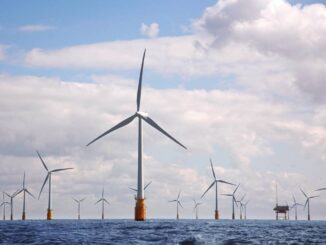
In the quest for greener skies, the UK’s ambitious plans for sustainable aviation fuel (SAF) have stalled dramatically, leaving promises of “guilt-free flying” grounded in reality. What was once hailed as a revolutionary step toward net-zero emissions in aviation now stands as a cautionary tale of high costs, financial hurdles, and unfulfilled government mandates.
Background: High Hopes for Waste-to-Fuel Innovation
Six years ago, British Airways (BA) unveiled plans for the UK’s first dedicated SAF factory, partnering with fuels firm Velocys to build a state-of-the-art plant near the Humber estuary in north Lincolnshire. The facility was designed to transform household rubbish—destined for landfills—into thousands of tonnes of eco-friendly jet fuel. Alex Cruz, BA’s then-CEO, described SAF as a “game-changer for aviation,” envisioning a future where waste powers sustainable flights.
This initiative aligned with broader industry goals to reduce aviation’s carbon footprint. SAF, produced from materials like cooking oil, animal fats, wood, and plastics, promised to cut emissions significantly compared to traditional fossil-based jet fuel. The project was expected to be operational by last year, symbolizing the UK’s leadership in the energy transition.
Government Push: The “Jet Zero” Policy
In 2022, under then-Prime Minister Boris Johnson, the UK government launched its “Jet Zero” strategy, aiming for zero-carbon flying by 2050. Johnson optimistically declared that “sustainable fuels and fully electric planes will achieve guilt-free flying for years to come.”
The policy mandated that British airlines incorporate SAF into their operations, starting with 2% this year, rising to 10% by 2030, and 22% by 2040. It also pledged the construction of five new SAF plants by now, which were projected to create jobs and establish the UK as a “clean energy superpower.”These targets were intended to drive investment and innovation in the sector, addressing aviation’s contribution to global emissions—estimated at around 2-3% worldwide, with the UK consuming 11 million tonnes of aviation fuel annually.
Current Reality: Empty Fields and Meager Production
Fast forward to today, and the vision has faltered. The Velocys site remains an undeveloped field, marked only by a lone portaloo, far from the bustling factory once promised.
Velocys itself faced severe financial difficulties, running out of money last year and being acquired by a private consortium, which has further delayed any progress. Across the UK, SAF production is virtually non-existent on the scale needed. The sole operational producer, Phillips 66 at its Humberside refinery, outputs just 20,000 tonnes of SAF per year—equivalent to a mere 0.2% of the nation’s total aviation fuel demand.
No other plants have come online, leaving airlines scrambling to meet the government’s escalating quotas through imports or alternative compliance measures.
The Brick Wall: Cost and Complexity
The primary barriers are economic and technical. SAF production is energy-intensive, requiring processes to break down waste materials into usable fuel. As a result, its cost is prohibitively high: On August 13, the European price for SAF stood at $2,280 (£1,681) per metric tonne—more than three times that of conventional jet fuel, according to biofuels analyst Simone Burgin of Argus Media.
This price disparity, coupled with limited feedstock availability and scaling challenges, has deterred investment. While the government has offered incentives, critics argue they fall short of bridging the gap. The failure of projects like Velocys underscores the broader difficulties in the energy transition for hard-to-abate sectors like aviation, where alternatives like electric or hydrogen-powered planes remain years away for long-haul flights.
Implications for the Energy Sector and Beyond
For the energy industry, this setback highlights the risks of over-reliance on policy mandates without sufficient technological maturity or economic support. Airlines may face higher costs passed on to consumers, potentially slowing travel recovery post-pandemic. Meanwhile, the UK’s ambitions to lead in clean energy are under scrutiny, as imported SAF—often from the US or Europe—fills the void, raising questions about energy security and domestic job creation.
As the world pushes toward net-zero, the UK’s SAF saga serves as a reminder that innovation requires not just vision, but viable economics. Without breakthroughs in cost reduction or stronger incentives, climate-friendly aviation fuel may remain a pipe dream for years to come.
This article is based on insights from EnergyPoint Research and reports in The Telegraph.
Avoid Paying Taxes in 2025
Crude Oil, LNG, Jet Fuel price quote
ENB Top News
ENB
Energy Dashboard
ENB Podcast
ENB Substack






